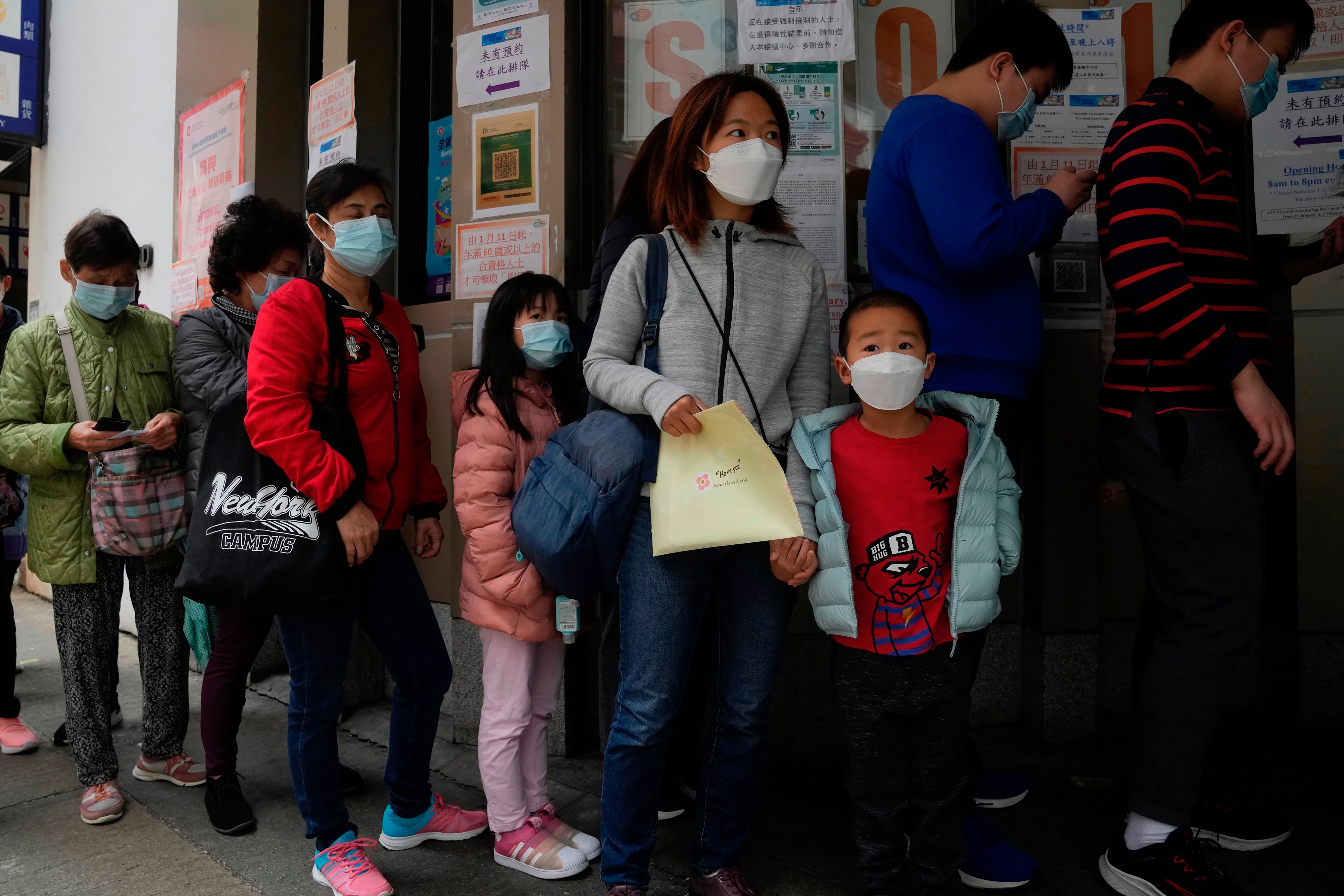Hong Kong parents race to vaccinate young children as Covid surges
Deaths of two children with coronavirus this week have caused alarm in the Chinese-controlled city

Hong Kong parents rushed children as young as three years old to vaccination centres this week as the government lowered the age limit for the shots and the deaths of two toddlers exacerbated concerns in a city struggling to cope with a surge in Covid cases.
The government approved children aged three and older to take China’s Sinovac vaccine from 15 February, while those aged five and older can take the BioNTech shot.
The measures come as the Chinese territory has recorded a 60-fold surge in infections since 1 February, overwhelming hospitals and testing facilities.
A three-year-old and a four-year-old, both diagnosed with coronavirus, died in the past week. Authorities said they were “saddened” by the deaths and would offer assistance to the children’s families.
At a vaccination centre in the northern New Territories district on Friday, long queues formed early in the morning, with parents and children braving wet and windy weather before being allowed inside for vaccinations.
Dozens of children were bundled up in jackets, some clutching their parents as they stood in line. All wore masks, while some also had plastic face shields.
“I was extremely worried when I heard the news that a three-year old and four-year-old had died. So I immediately made an appointment,” Yoki Tsang, who has two boys aged three and five.
“It’s heartbreaking to hear the child passed away like this,” she said as she waited with her three-year-old outside the centre.
The rush to get children vaccinated comes as the city’s hospitals are overflowing, with elderly and children on beds in cold and rainy parking lots. Isolation facilities are full, while thousands queue for hours outside testing venues.
China’s president, Xi Jinping, this week told Hong Kong‘s leaders to control the outbreak as its top priority, with the mainland ramping up to help Hong Kong with testing and building of isolation facilities.
Hong Kong reported 3,629 new daily Covid infections on Friday, with an additional 7,600 preliminary positive cases, authorities said.
The city has recorded over 40,000 infections and around 240 deaths since the pandemic started, far fewer than in other major cities. However daily infections are expected to approach 30,000 by the end of March, experts said.
Although 85 per cent of the city’s 7.4 million residents have received at least one vaccine dose, about 60 per cent of residents older than 80 remain unvaccinated. About 12 per cent of children ages 3-11 have received a vaccine, government data showed.
Health authorities have identified the elderly and young children as high risk, encouraging vaccinations.
Some parents have pushed for their children to be isolated at home rather than sent to a hospital or a government quarantine facility because of the difficulty of caring for them and the emotional toll from being separated.
Infants and toddlers have during the past two years been separated from their parents after being infected, resulting in a harrowing and traumatic experience, some residents said. The government has since said a parent is allowed to accompany their children.
Joe Wong, 41, said he used to worry about vaccinating his six-year-old daughter, but changed his mind.
“We are all worried that something will happen to her,” he said. “I hope she will have more protection after getting vaccinated.”
Reuters
Join our commenting forum
Join thought-provoking conversations, follow other Independent readers and see their replies
Comments

Bookmark popover
Removed from bookmarks